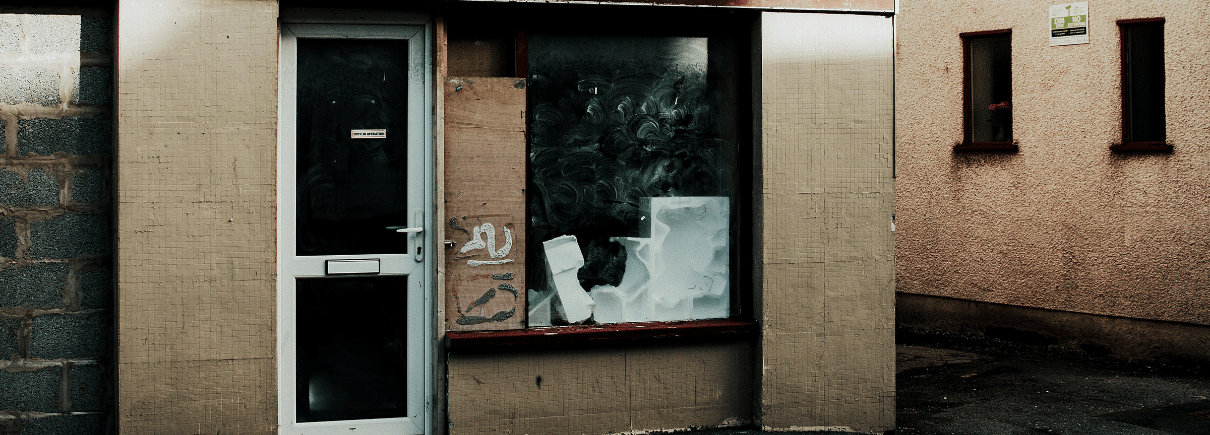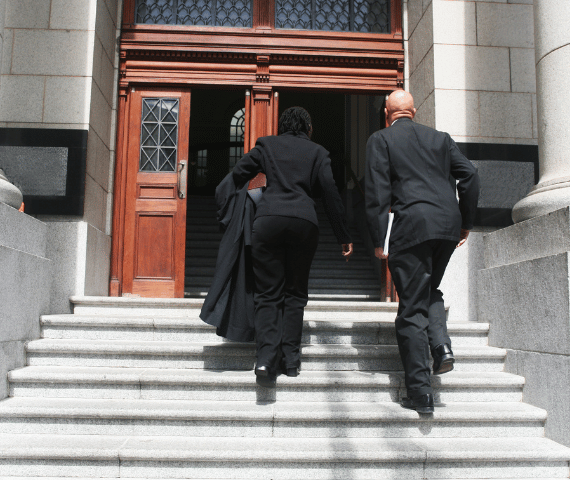Squatting Concerns for Landlords: How To Protect Your Commercial Property
Squatting is a growing concern for landlords, especially those managing vacant properties. It is defined as occupying commercial or residential properties without permission. Since a 2012 change in the law, squatting in a residential property has been illegal. Section 144 of the Legal Aid, Sentencing and Punishment of Offenders Act created a new criminal offence that the Police can enforce. The situation with commercial properties, where this blog focuses, is less clearly defined. For non-residential properties, squatting remains legal, and issues around ownership and access become civil matters.
Understanding the implications of squatting and taking proactive steps to protect commercial property is crucial for landlords aiming to avoid costly and stressful situations. As a result, our blog article explores the risks, prevention strategies, and solutions landlords need to safeguard their properties against squatting.
What is Squatting? Understanding Legal Issues With Squatters
Squatting refers to the act of occupying a property without legal permission. While often associated with wholly abandoned properties, even well-maintained buildings can become targets if left unoccupied for even the briefest periods.
We’ve established that squatting in residential properties is a criminal offence. However, the legal risks for landlords in commercial properties are generally considered civil matters, which means dealing with squatters presents specific legal risks for landlords.
Adverse Possession In Commercial Property
The most significant concern for landlords is adverse possession. Adverse possession is a legal principle that allows squatters to claim ownership of a property after occupying it continuously for a specified period, providing they meet the correct legal criteria. In the UK, the period before adverse possession can be claimed is typically 10 years for properties registered on the HM Land Registry. Otherwise, the period is 12 years. Ignoring this risk can mean losing your property altogether.
Evicting Squatters From Commercial Property
Assuming you respond before the threat of adverse possession looms, evicting squatters can prove expensive and time-consuming for landlords. As a civil matter, landlords, or more likely their legal representatives, must file a County Court order known as an Interim Possession Order to proceed against squatters. A court date will be set to decide an appropriate course of action. Assuming this supports the landlord’s position, court-approved enforcement officers are allocated to execute the eviction. Evicting squatters without this legal sanction can leave landlords liable for criminal prosecution, so avoiding the temptation to take matters into your own hands is vital.
Finally, landlords may also be held liable for injuries sustained by squatters or damage they cause. The fact this liability still needs to be considered in the event of unapproved occupation underscores the importance of maintaining property safety standards.
Preventing Squatting: Practical Measures
Proactively securing your property is the most effective way to deter squatters. Here are some practical measures that will help in preventing squatting in vacant properties.
The most immediate way to prevent squatting is to protect your property well to deter unauthorised entry. Recommended steps to securely managing vacant properties include installing appropriate locks on all doors and windows, erecting security fencing around the property and setting up alarm systems or CCTV for 24/7 monitoring. Frequent inspections of your property can also help identify potential vulnerabilities and spot evidence of problems before squatters establish themselves. Developing good relationships with local authorities and neighbours who can help monitor your property is also good practice. They can alert you to suspicious activity promptly.
One mitigation strategy that has received considerable press in recent years is hiring property guardians for vacant properties. These individuals temporarily live in an empty property to keep it secure. At ASTOP, we specialise in finding short-term, flexible tenants from local communities who operate similarly. The best way to remove the risk of squatting in your property is to avoid periods of unoccupancy altogether.
The Legal Eviction Process For Squatters
If squatters do occupy your property, responding quickly and lawfully is essential. The legal process for eviction follows these steps;
- File for an Interim Possession Order (IPO) through the courts.
- Assuming the result goes your way, serve the IPO on the squatters.
- Once the court grants possession, approved enforcement officers will remove the squatters.
As the above is considered a civil rather than criminal process for commercial property, it is important to note the police can only intervene if squatters commit offences while occupying your property, such as causing damage or committing theft. It’s worth noting that using utilities such as electricity and water without permission may constitute theft. In all cases, however, it is advisable to consult legal advice before involving the authorities. Landlords must avoid taking matters into their own hands at all costs, as illegal attempts at eviction and use of force can result in fines or legal action. The prescribed legal process has its frustrations, but it is important to follow to avoid costly litigation or even criminal proceedings.





